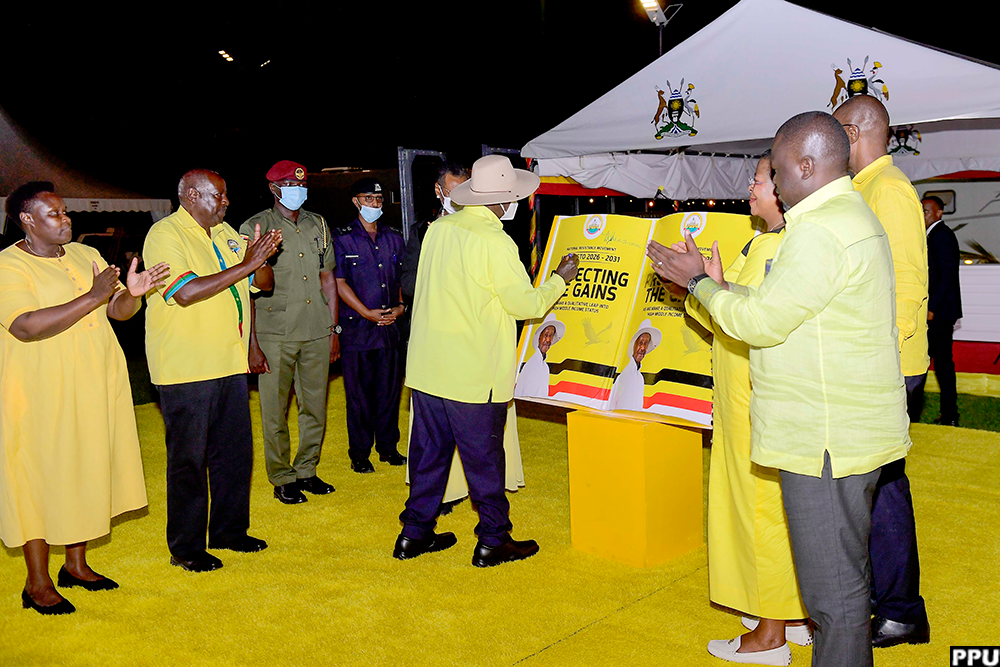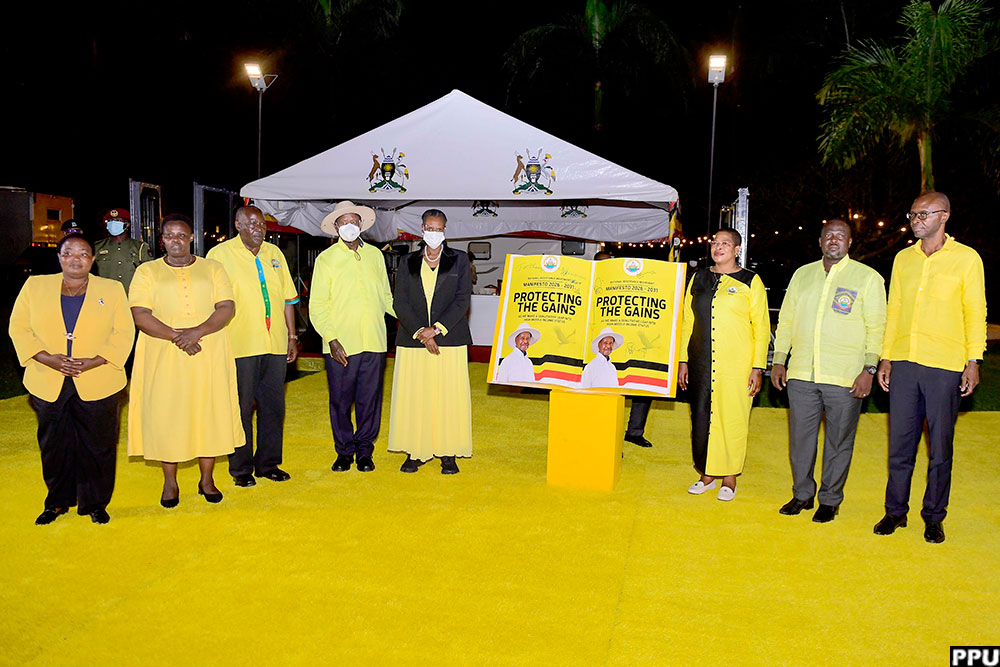Politics
Seeking re-election, Museveni launches NRM Manifesto 2026–2031
Among other promises, the NRM is pledging curriculum reforms to focus on job creators, recruitment of 49,406 new teachers, and progressive salary enhancement for civil servants, including arts teachers.
The NRM 2026-2031 Manifesto is all about protecting the gains and securing a qualitative leap into high middle-income status. (Credit: PPU)
By: Admin ., Journalists @New Vision
_________________________
President Yoweri Kaguta Museveni, who is also the national chairman of the ruling National Resistance Movement (NRM), has officially launched the party’s manifesto for the 2026–2031 term.
This was at a grand ceremony hosted at Munyonyo Commonwealth Resort Hotel in Kampala on Monday, the official opening day of the presidential campaigns for the 2026 race.
The NRM event drew Cabinet ministers, Members of Parliament, senior NRM officials, and party secretariat leaders. It was themed: 'Protecting the Gains and Securing a Qualitative Leap into High Middle-Income Status'.
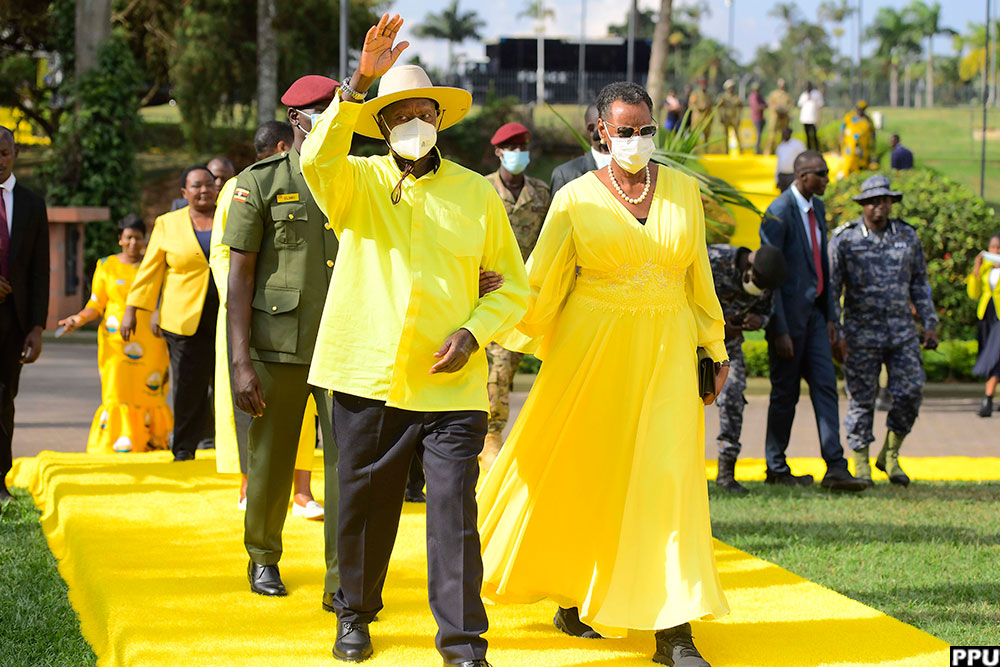
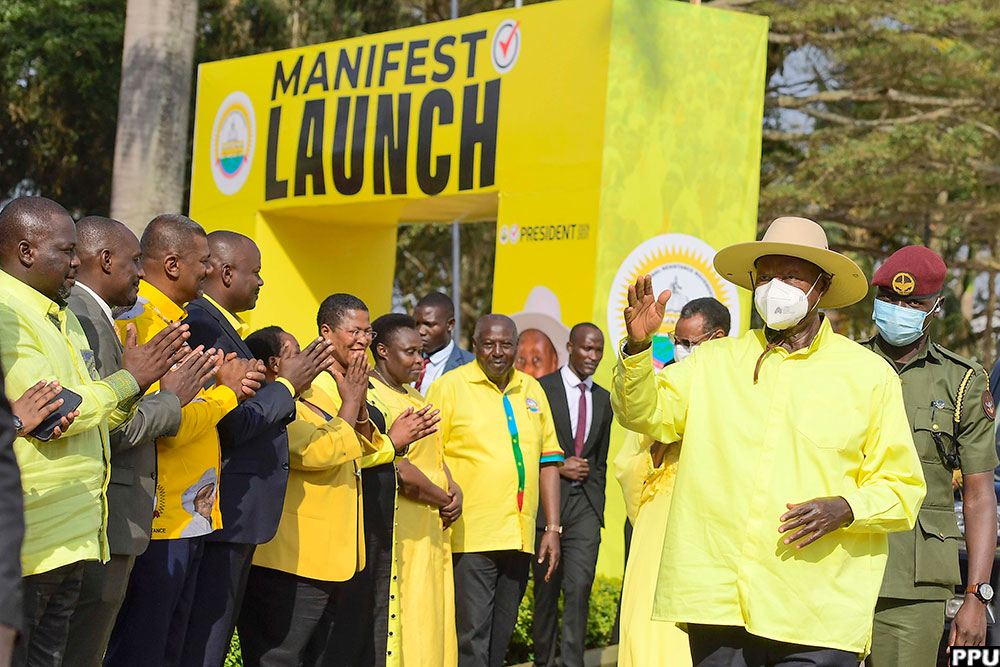
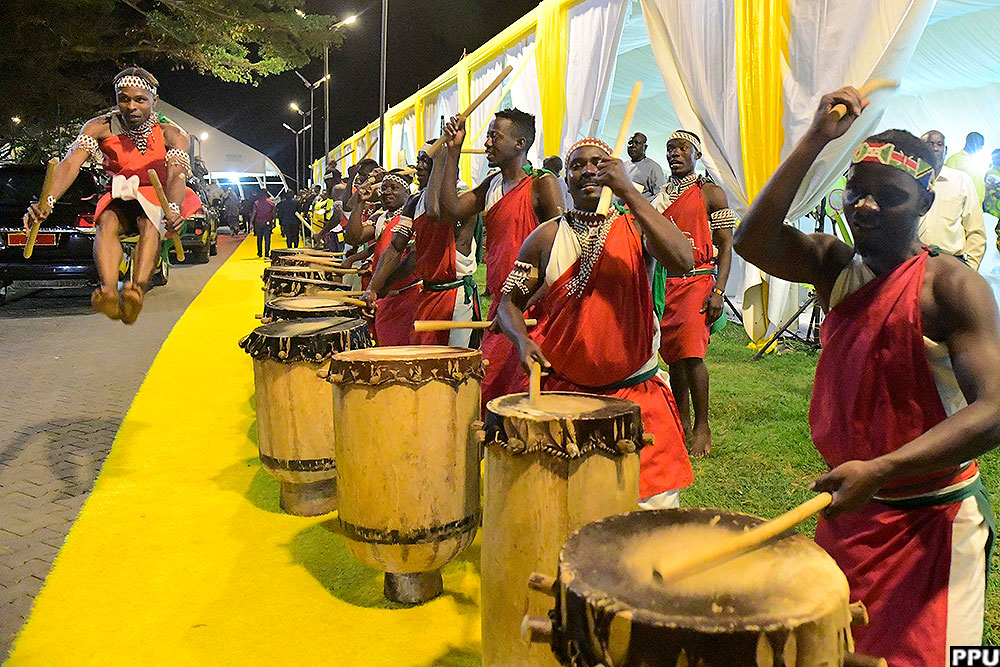
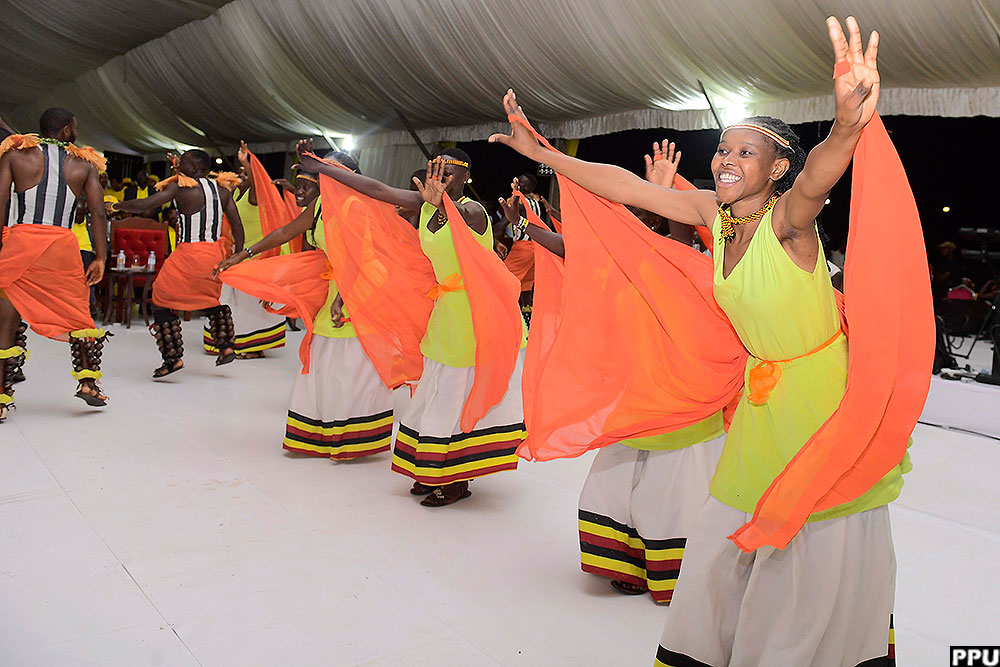
Museveni retraced the NRM’s 60-year historical struggle while also laying out ambitious commitments for the next five years. He expressed gratitude to the NRM delegates for once again entrusting him with leadership.
"I want to thank you for supporting my candidature, first of all, electing me chairman of the NRM again for another five years, 2025 to 2031, and then also electing me as flagbearer."
Museveni described the liberation struggle between 1965 and 1986 as a decisive period when NRM leaders risked all to free the country from dictatorship and chaos.
He declared that the NRM’s most important gift to Uganda has been peace and security, which has been assured largely by the people of Uganda and the Uganda People’s Defence Forces (UPDF). “Our army is very strong. Nobody can bring war here. If you bring war here, we will destroy you,” he stated firmly, drawing applause.
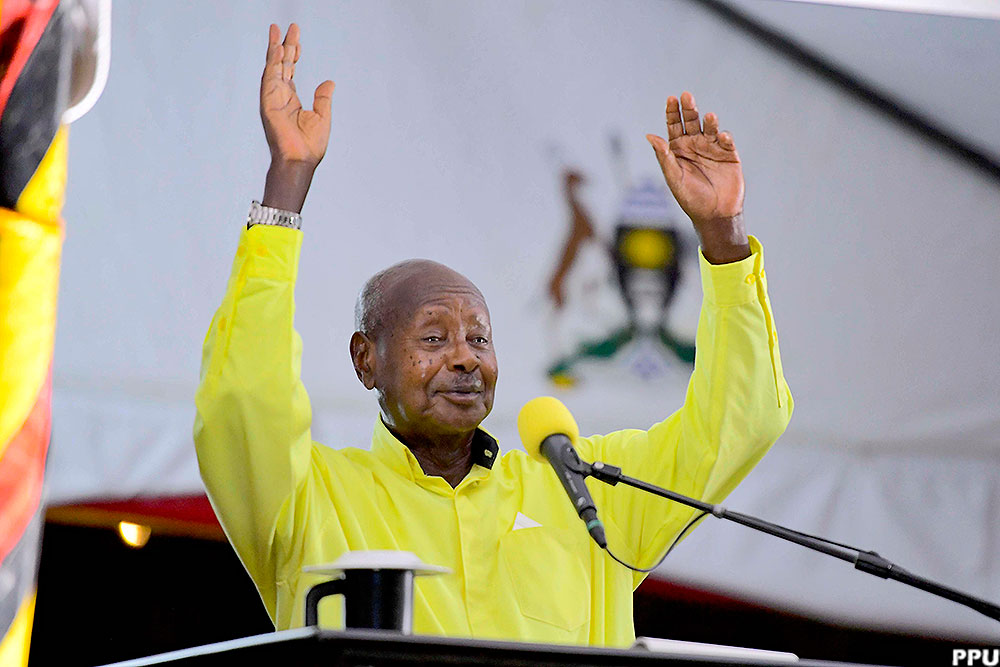
Museveni also cautioned that peace must be distinguished from security. He acknowledged that crime, particularly theft, continues to frustrate citizens and undermine the government’s development programmes such as the Parish Development Model (PDM).
“People get money for PDM. They buy pigs, goats, chicken — they are stolen. And you find the policemen colluding with the thieves. The Judiciary releases them. You leaders should not accept this in your areas."
He urged leaders to enforce discipline and reject any culture of leniency towards crime. “Any thief who steals properties of the villages must go to jail and stay there and pay for what he has stolen before he comes out. Be very strict — don’t play around.”
Beyond peace and security, the NRM leader highlighted three pillars of Uganda’s transformation: development, infrastructure, and wealth creation. He explained that development covers both economic and social infrastructure: roads, electricity, schools, hospitals, and ICT. Wealth creation, however, remains the key to consolidating the NRM’s legacy.
“You, the leaders, should really know that to strengthen the NRM more and durably, you must do what we in the student movement did in the 1960s when we started the campaign in the cattle corridor."
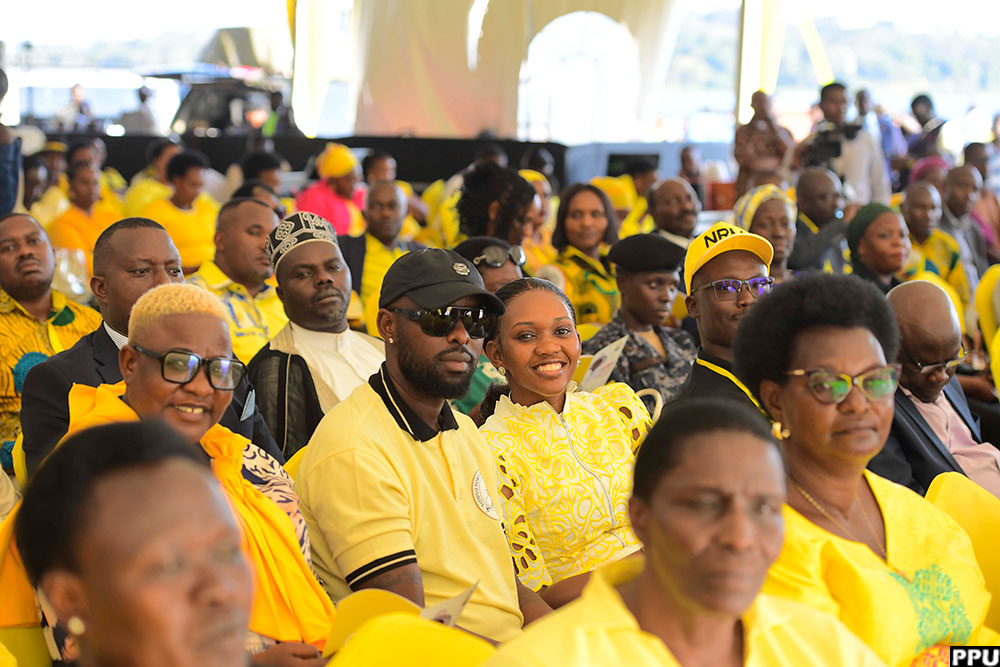
Museveni narrated how the cattle corridor, once plagued by nomadism and poverty, was transformed through dairy farming campaigns into a prosperous region. “Despite infrastructure challenges, regions like Ngoma and Matongo are now prosperous, with residents owning cars and having money."
With 40 million acres of arable land, he said Uganda has the capacity to create over 105 million jobs if even seven million acres are properly utilized. “There will be so many jobs that even refugees in the camps will get out and work."
On employment, the President insisted that Uganda has enough opportunities if productivity is maximized. “People going to the Middle East to look for jobs — what are you going to look for? The Middle East should be coming here to work. You leave jobs here, you go to work in the Middle East."
The President also highlighted Uganda’s scientific innovations, especially in health, saying that Ugandan scientists have developed medicines for cancer, diabetes, malaria, and other global diseases. “Our people have discovered medicines; we are going to save the world from so many problems,” he said, framing science and innovation as another frontier of Uganda’s transformation.
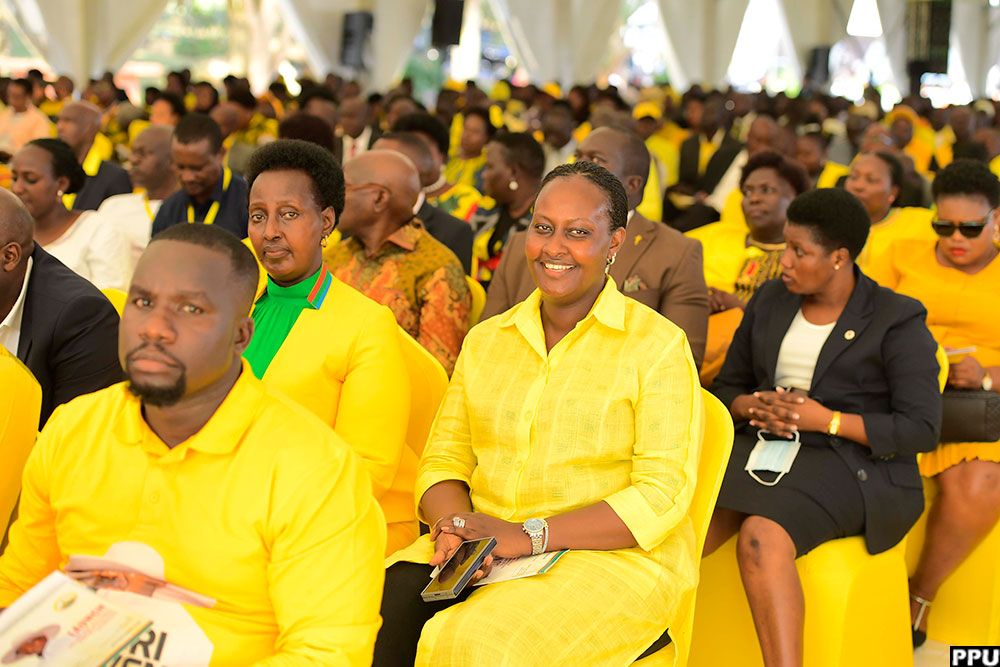
'Let us work together'
The NRM first national vice-chairperson, Al-Haji Moses Kigongo, thanked President Museveni for accepting to run again for Presidency and assured him of victory in the 2026 elections. “We are ready. The country is ready. And I can assure, Your Excellency, that we are going to win the election."
He, however, cautioned party members against indiscipline and infighting.
“If we don’t pull up on discipline, things might be difficult for us. I appeal to you, honorable members, first of all, to love one another. Let us work together. This infighting must stop and stop now. Let us move together as one group,” urged Kigongo.
The Speaker of Parliament and NRM second national vice-chairperson, Anita Annet Among, said the NRM’s evolution from the 10-Point Programme has been deliberate and transformative. “It is now time for us to protect the gains we have registered in the transformation of our beloved country,” she said.
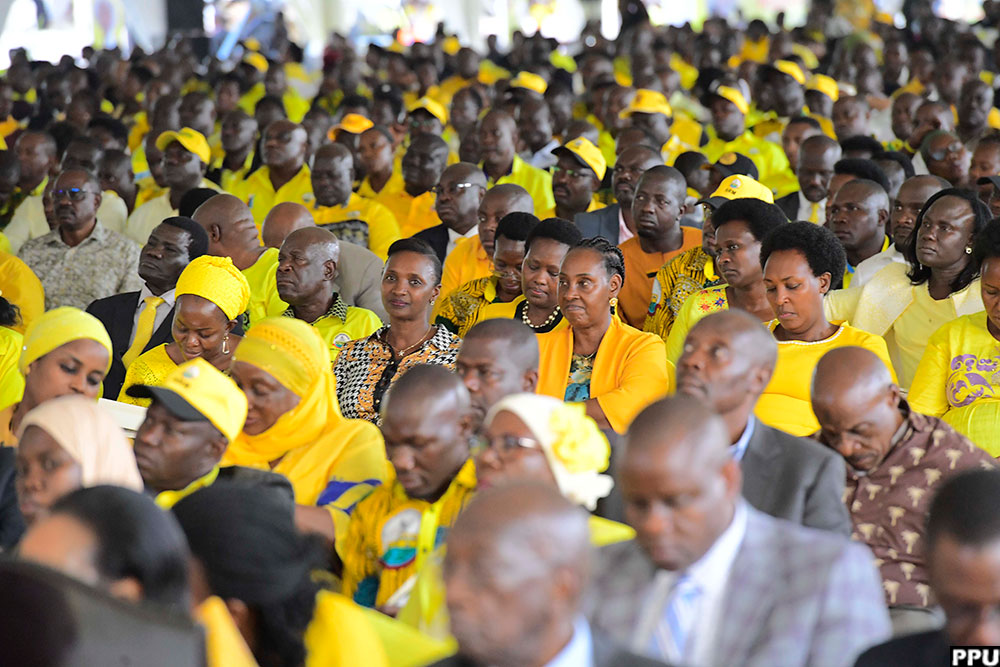
'Lives transformed'
Richard Todwong, the NRM secretary general, said the 2026–2031 manifesto builds systematically on past manifestos. Reflecting on the party’s history, he reminded members that NRM manifestos have evolved consistently since 1986, beginning with the famous 10-Point Programme that emphasized democracy, security, national unity, elimination of sectarianism, economic independence, and social services restoration.
From 'Tackling the Tasks Ahead' in 1996, to 'Prosperity for All' in 2006, 'Peace, Unity and Transformation for Prosperity' in 2011, 'Steady Progress' in 2016, and 'Securing Your Future' in 2021, the NRM has maintained consistency, argued Todwong.
“The size of the economy has doubled in spite of global shocks such as COVID-19 and disruption in external markets,” he added, projecting that by the end of the 2025/26 financial year, Uganda’s economy will have expanded to 254.2 trillion shillings (66.1 billion dollars).
He highlighted achievements from the outgoing 2021–2026 manifesto, saying: "Poverty levels declined from 21.4% in 2016 to 16.1% in 2025, jobs rose from 258,286 in 2020/21 to 345,039 by 2025, recovering from COVID-19 disruptions and the Ugandan shilling remained the most stable currency in Africa in 2024/25."
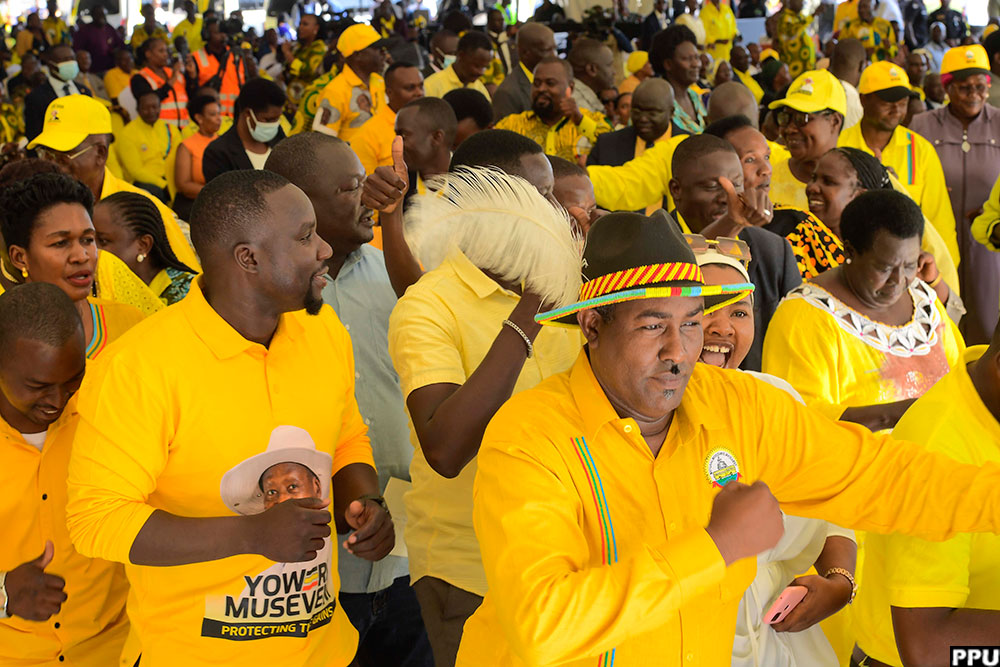
The NRM secretary general said factories increased to 50,000, up from 37,559 in 2019/20, export earnings reached 13.3 billion dollars in 2024/25, driven by coffee, gold, dairy, cocoa, and manufactured goods and electricity generation rose to 2,051 MW in 2024, powered by Karuma and Isimba hydropower plants.
On health, Todwong said life expectancy improved to 68 years from 45 in 1986; maternal and infant mortality drastically declined and Universal Primary Education (UPE) and Universal Secondary Education (USE) boosted school enrollment to 9.1 million learners by 2025, while literacy rates rose to 74%.
“These are not just numbers — they are lives transformed,” he said.
Looking ahead, Todwong outlined the core themes of the new manifesto. He also announced that PDM funding for Greater Kampala Metropolitan will rise to 300 million shillings per parish, with special grants for persons with disabilities, village leaders, and religious leaders.
On education, Todwong pledged curriculum reforms to focus on job creators, recruitment of 49,406 new teachers, and progressive salary enhancement for civil servants, including arts teachers.
On governance, he reiterated zero tolerance to corruption, decentralization, land reforms, and stronger security guarantees.
Regionally, NRM committed to supporting East African political federation, a single currency, and the elimination of non-tariff barriers.
